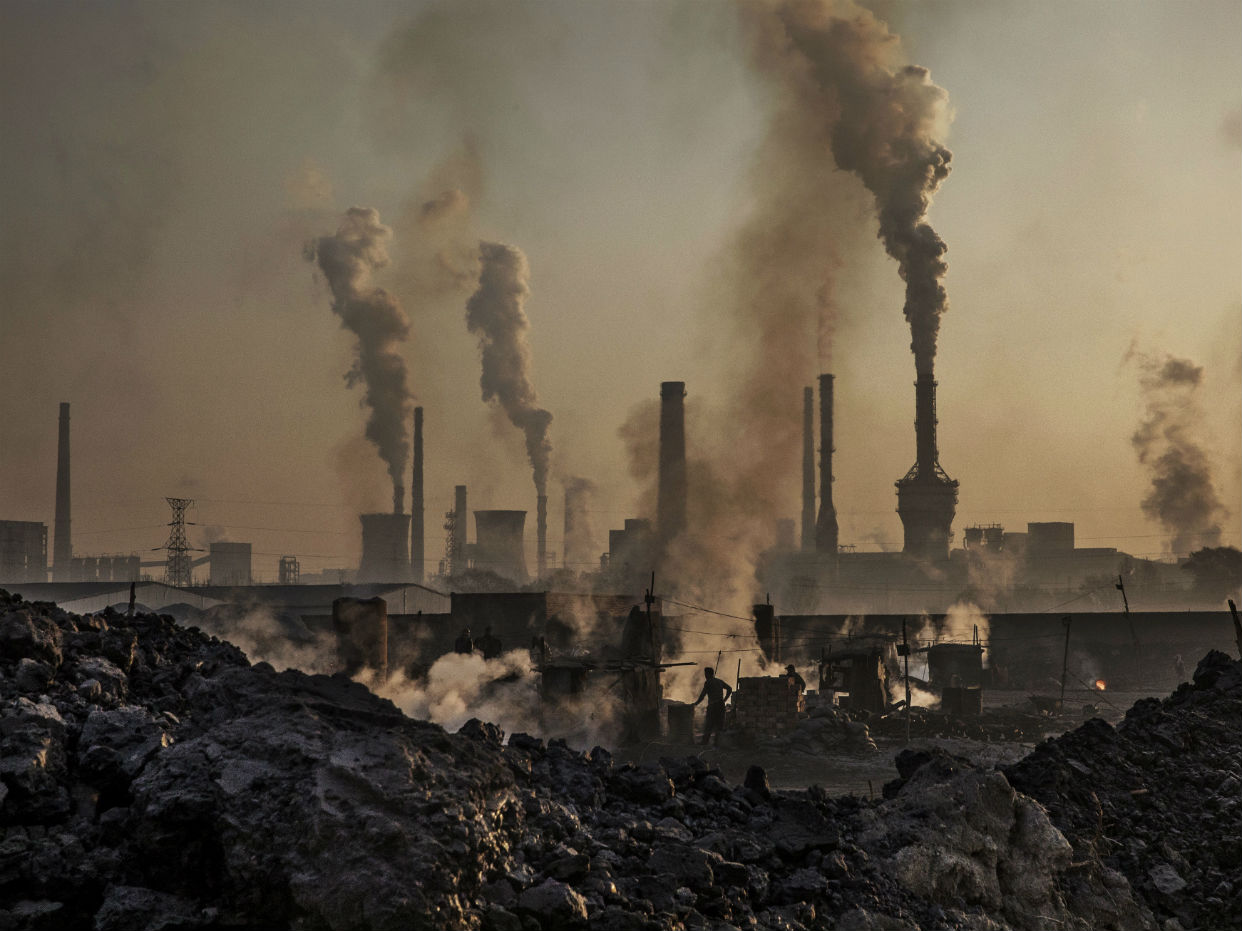Thousands of climate scientists warn of ‘untold suffering’
Joint statement sees scientists from more than 150 nations declare ‘climate emergency’

A free daily email with the biggest news stories of the day – and the best features from TheWeek.com
You are now subscribed
Your newsletter sign-up was successful
The human race faces “untold suffering due to the climate crisis” unless there are radical reforms to policy, according to a warning from more than 11,000 scientists.
In the statement, published on the 40th anniversary of the first world climate conference, the scientists “declare clearly and unequivocally that planet Earth is facing a climate emergency”.
They add: “To secure a sustainable future, we must change how we live. [This] entails major transformations in the ways our global society functions and interacts with natural ecosystems.
The Week
Escape your echo chamber. Get the facts behind the news, plus analysis from multiple perspectives.

Sign up for The Week's Free Newsletters
From our morning news briefing to a weekly Good News Newsletter, get the best of The Week delivered directly to your inbox.
From our morning news briefing to a weekly Good News Newsletter, get the best of The Week delivered directly to your inbox.
“The climate crisis has arrived and is accelerating faster than most scientists expected. It is more severe than anticipated, threatening natural ecosystems and the fate of humanity.”
The Washington Post says the report is a “stark departure from recent scientific assessments of global warming” because it “does not couch its conclusions in the language of uncertainties, and it does prescribe policies”.
The scientists suggest focusing on six major global projects: clean energy use, a reduction of short-lived pollutants, natural conservation, promotion of plant-based diets, a rejection of exploitative economic systems, and a sustainable global human population.
Air passengers numbers are among the “profoundly troubling signs from human activities,” say the experts. “The climate crisis is closely linked to excessive consumption of the wealthy lifestyle,” they add.
A free daily email with the biggest news stories of the day – and the best features from TheWeek.com
“The good news is that such transformative change, with social and economic justice for all, promises far greater human well-being than does business as usual,” the team concluded in the paper.
The statement was drawn up by dozens of scientists and endorsed by a further 11,000 from more than 150 different nations. It was published in the journal BioScience, the monthly journal of the American Institute of Biological Sciences.
–––––––––––––––––––––––––––––––For a round-up of the most important stories from around the world - and a concise, refreshing and balanced take on the week’s news agenda - try The Week magazine. Get your first six issues for £6–––––––––––––––––––––––––––––––
-
 What to know before filing your own taxes for the first time
What to know before filing your own taxes for the first timethe explainer Tackle this financial milestone with confidence
-
 The biggest box office flops of the 21st century
The biggest box office flops of the 21st centuryin depth Unnecessary remakes and turgid, expensive CGI-fests highlight this list of these most notorious box-office losers
-
 The 10 most infamous abductions in modern history
The 10 most infamous abductions in modern historyin depth The taking of Savannah Guthrie’s mother, Nancy, is the latest in a long string of high-profile kidnappings
-
 The plan to wall off the ‘Doomsday’ glacier
The plan to wall off the ‘Doomsday’ glacierUnder the Radar Massive barrier could ‘slow the rate of ice loss’ from Thwaites Glacier, whose total collapse would have devastating consequences
-
 Can the UK take any more rain?
Can the UK take any more rain?Today’s Big Question An Atlantic jet stream is ‘stuck’ over British skies, leading to ‘biblical’ downpours and more than 40 consecutive days of rain in some areas
-
 As temperatures rise, US incomes fall
As temperatures rise, US incomes fallUnder the radar Elevated temperatures are capable of affecting the entire economy
-
 The world is entering an ‘era of water bankruptcy’
The world is entering an ‘era of water bankruptcy’The explainer Water might soon be more valuable than gold
-
 Climate change could lead to a reptile ‘sexpocalypse’
Climate change could lead to a reptile ‘sexpocalypse’Under the radar The gender gap has hit the animal kingdom
-
 The former largest iceberg is turning blue. It’s a bad sign.
The former largest iceberg is turning blue. It’s a bad sign.Under the radar It is quickly melting away
-
 How drones detected a deadly threat to Arctic whales
How drones detected a deadly threat to Arctic whalesUnder the radar Monitoring the sea in the air
-
 ‘Jumping genes’: how polar bears are rewiring their DNA to survive the warming Arctic
‘Jumping genes’: how polar bears are rewiring their DNA to survive the warming ArcticUnder the radar The species is adapting to warmer temperatures